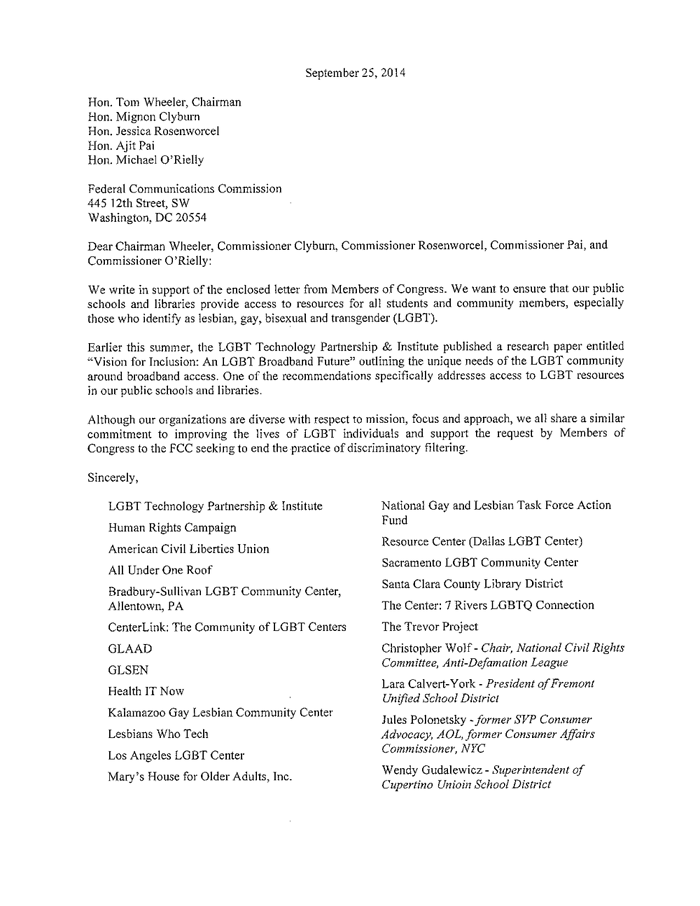
Several members of Congress and advocacy groups are calling on the Federal Communications Commission to ensure online resources for LGBT people aren't blocked by web filters at federally-funded schools and libraries.
In a letter to FCC officials organized by Rep. Mike Honda — the California Democrat who is the founder and chair of the Congressional Anti-Bullying Caucus — the group of lawmakers and nonprofits said content filters are used to block pornographic or offensive websites but can also be used "to block access to particular viewpoints in a discriminatory manner," such as websites with LGBT resources and content.
Thirteen members of Congress and 23 advocacy organizations — including the American Civil Liberties Union, GLAAD, and The Trevor Project — signed onto the letter. The push comes just after software giant Symantec announced its web filtering products will no longer block websites just because of their LGBT content. And this week, advocates have raised concerns over filters blocking LGBT sites on in-flight Wi-Fi.
The lawmakers state in the letter that the FCC is required to establish filters and policies to block Internet content that is "obscene; child pornography; or harmful to minors." And with that, they urge the Commission to consider how such filters could be discriminatory.
"We are aware that you are in the midst of a proceeding to modernize the E-rate program," the lawmakers said in the letter. "We encourage you to consider this problem in the course of this proceeding and adopt a solution to end this practice. For example, the Commission's regulations could make clear that LGBT educational content should not be filtered in a discriminatory manner."
A request was made with an FCC press contact as to whether the commission can or will make sure LGBT sites are not blocked by web filters at schools or libraries.
The letter cites a report this year by the LGBT Technology Partnership and Institute, which found that LGBT people are vulnerable to such filters and internet policies at schools, and also points to a 2011 ACLU lawsuit against a Camdenton, Missouri school district that blocked LGBT websites, but not sites with anti-LGBT content. A federal judge ruled in the 2012 the school must stop using the filter, according to the letter.
"In an age when high-speed broadband is transforming almost every aspect of our lives, we must ensure online access to every adult and child," the letter states. In a statement, Ian Thompson, legislative representative for the ACLU, said, "The FCC now has an opportunity to address this problem, and they should act to do so."

